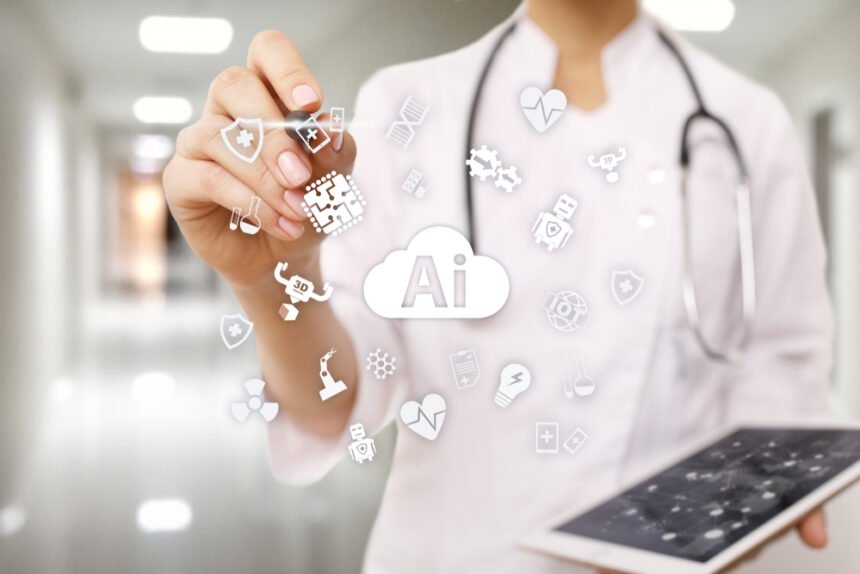There are more than a few accomplishments credited to the race of humans. Is it discovering the deepest secrets of the universe to coming up with technologies that one could only dream about? Homo sapiens have advanced to a great extent in every walk of life, with their intelligence and passion to become the best version of them.
The Picture of AI in the World
Then came the concept of artificial intelligence, where humans tried to replicate their own intelligence and transform it into a cutting edge technology. And here we are today, artificial intelligence ideas that seemed like a distant goal to achieve are all realities. Back in the 1940s when most of the concepts of the technology were being laid on, people feared what might happen if it went loose. There was quite some disquietude about what would happen if artificial intelligence came in direct contact with the people of the world. Would it be safe to be in a world where AI and humans walk together? Or would the proliferation of artificial intelligence prove a threat to the human race? Here we are now, living in a world where artificial intelligence is an indispensable part of our lives. And the more we look around the more we get to see this vividly. From our smartphones to tablets, software, mobile apps, websites, wearable devices and a plethora of other technological equipment, we are surrounded by AI in the world. Adding more to this are robots performing surgery with far more precision than humans do, taking care of the elderly and at the same time acting as the best companions as anyone could ever have. Truly, we have accomplishments that we can boast of as humans. But in spite of the technological breakthrough, the healthcare software development sector is one industry that still has a lot of prevailing challenges and issues. We are still diagnosing patients for any traces of later stages of a disease. Similarly, we have medicine designed for a group of people rather than for one particular patient’s needs along with the lack of healthcare facilities in the remote areas. If you compare it to other walks of life, the adoption of technology hasn’t been as great in healthcare. There is still a long way to go. Artificial intelligence specifically has more than a few opportunities in the field of healthcare. From assistance to delivery and patient care, AI along with its sub-niches like machine learning etc. can help advance the healthcare of the society and save a significant number of lives. Another one of the greatest utilization of artificial intelligence can be talked about reducing healthcare costs.
Healthcare as a service
Statistics suggest that in 2017 alone, the healthcare costs in US alone were $3.7 trillion. And this equals 17.9 percent of the gross domestic product of the US economy. Coming to 2018, the average consumer spent $4968 on healthcare. Depending upon whether one has insurance or not, the health care costs have astonishingly seen a 50 percent rise from the year 2007 to 2017. The point is that healthcare has become an expensive affair, in spite of the fact that technology adoption has significantly taken place in the industry. While most of the developed economies are able to sustain this culture, it is ultimately the developing and the third country citizens who are the most to suffer. Healthcare has become a service that only the rich can afford. But, that’s not how healthcare should be. It should be out there available to everyone who need it, regardless of their race, or social or financial status. There are more than a few regions in the world, where providing healthcare services is one hell of a challenge. Forget about medical experts, these regions don’t even support general physicians or diagnostic centers, where one can head for immediate services. While governments across the world are easing their policies and taking steps to minimize the impact of rising costs, it ultimately comes down to technologies like artificial intelligence. With AI and machine learning in the picture, not only can the most pressing challenges be answered but also new innovations can be fostered at much greater speeds. There are many organizations around the world that are using AI to drastically transform the healthcare picture in their regions. Even statistics suggest that seventy-nine percent of healthcare professionals indicate that artificial intelligence tools helped mitigate clinically burnouts. This suggested that technology-enabled providers deliver more engaging and patient-centered care. But contrary to many beliefs that suggested AI would remove the aspect of patient care from the healthcare industry, it is found doing the opposite. While healthcare was a service revolving around costs and leading to the burnout of medical professionals, AI is helping bring the human touch back to the industry. In other words, it would be apt to say that it is re-humanizing the healthcare industry with its practices and cutting edge ideas. AI is shifting the focus of the industry from only being there at the time of care to value-based services. This is helping clear the picture of healthcare services where reaching out to the doctor takes time or in the case of remote regions, where there are no readily available medical experts. Take the example of wearable devices. Powered by artificial intelligence, the gadgets can stay with the patient 24 * 7. And as they do, their job will be to monitor a patient’s statistics throughout the day. At the same time, these devices are also sending the live data to the cloud so that the patient’s doctor can see it at any particular time. But, most importantly, these devices will monitor the vitals of a patient and look for any abnormal patterns in them. Over time, the AI can anticipate when the condition of a patient will deteriorate and so on. Whenever there is such a possibility, it can immediately send a notification to the patient as well as any medical expert near the location.
Conclusion
This is just an idea. There is a lot more than an AI could do to humanize healthcare and make it a basic human right for people. It can reduce administrative burdens; carry on a physician’s mundane tasks along with optimizing schedule management in a hospital so that all patients who need attention can get it without having to wait any longer.









